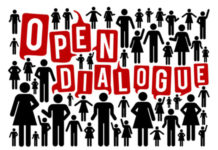Disease Theory of ‘Mental Illness’ Tied To Pessimism About Recovery
Researchers recently completed a first of its kind, large-scale international survey of attitudes about mental health and they were surprised by the results. According to their analysis published in this month’s issue of the Journal of Affective Disorders, people in developed countries, like the United States, are more likely to assume that ‘mental illnesses’ are similar to physical illnesses and biological or genetic in origin, but they are also much less likely to think that individuals can overcome these challenges and recover
Minority Discrimination Linked to Psychosis
A study published in this month’s issue of the Social Psychiatry and Psychiatric Epidemiology found that perceived discrimination related to minority status may precede...
Massachusetts Launches New Strengths-Based Early Psychosis Program
ServiceNet, a mental health and human service agency in western Massachusetts, received a three year, two million dollar grant to launch a program designed to support young adults who have recently experienced their first episode of psychosis. The Prevention and Recovery Early Psychosis (PREP) program is funded by the Massachusetts department of mental health and is designed to treat psychosis as a symptom, not an illness, resulting from other illnesses, substance abuse, trauma, or extreme stress.
New Study Investigates Cannabidiol (CBD) for Psychosis
A new study examines the effects of CBD as an adjunct therapy to antipsychotic medication for patients diagnosed with schizophrenia.
Psychiatrist Describes Role in Open Dialogue Model of Care
Psychiatrist outlines varying roles in Open Dialogue model, fostering service-user and family agency through meaningful conversations with a team of providers.
“People with Schizophrenia Hear Voices- Their Own”
For Slate, Eliezer Sternberg outlines research suggesting that auditory hallucinations are actually “subvocal speech” produced by the patient themselves. When a schizophrenic patient hears...
Psychiatry: We Need a Truth and Reconciliation Commission in Mental Health
My name is Leah Harris and I'm a survivor. I am a survivor of psychiatric abuse and trauma. My parents died largely as a result of terrible psychiatric practice. Psychiatric practice that took them when they were young adults and struggling with experiences they didn’t understand. Experiences that were labeled as schizophrenia. Bipolar disorder. My parents were turned from people into permanent patients. They suffered the indignities of forced treatment. Seclusion and restraint. Forced electroshock. Involuntary outpatient commitment. And a shocking amount of disabling heavy-duty psychiatric drugs. And they died young, from a combination of the toxic effects of overmedication, and broken spirits.
Mental Health Documentary “Healing Voices” Premiers Across 130 Communities in 8 Countries
The producers of “Healing Voices” ‐ a new social action documentary about mental health ‐ are releasing the film via community screening partners in...
Becoming a Hearing Voices Facilitator
For three days in December, I was fortunate enough to attend the Hearing Voices Facilitator Training held in Portland, OR. This training expanded my understanding of the voice hearing experience and equipped me with a number of tools to use in facilitating hearing voices support groups. Grounded in a feeling of community, the training was dynamic, emotionally therapeutic, and educational all at the same time – a crystal clear example of how support groups themselves might manifest in the lives of their members.
Childhood Victimization Connected with Experiences of Psychosis
Childhood victimization associated with experiences of psychosis later in life, and in persons without childhood victimization, there is a bidirectional association between psychosis and adult victimization.
Art and Images in Psychiatry
Between 2002 and 2014, JAMA Psychiatry published monthly essays by Dr. James C. Harris exploring the role of visual arts in representing emotional distress, trauma, life...
AVATAR Therapy Shows Some Positive Outcomes, Now What?
In a commentary piece, Ben Alderson-Day and Nev Jones discuss the AVATAR therapy research for psychosis and propose further questions.
Specific Early-Life Adversities Lead to Specific Symptoms of Psychosis
Researchers in the U.K. (lead by Richard Bentall) found that specific childhood adversities were significantly associated with specific forms of psychosis in adulthood in...
Hearing Voices Workshop Comes to Vermont
I recently had the great pleasure of hosting a Hearing Voices workshop with Ron Coleman and Karen Taylor. The response was overwhelmingly positive. Many people described this as one of the best trainings they had ever attended. Ron's message is inherently uplifting - after all this internationally known educator was once a mental patient given a poor prognosis. But in addition, they offered pragmatic suggestions for how to think about voices and talk to someone who is experiencing them.
On “Schizophrenia”
The first time I heard someone labeled schizophrenic I was about 10 years old. A man was talking to himself and appeared to be house-less and perhaps on drugs. My mom, a very good teacher and explainer of things to me, said, “That man is schizophrenic. That means he can't tell the difference between what's inside of himself and what's outside.” In retrospect this seems like a relatively sophisticated and sensitive explanation; Falling in love, hearing music that enters our heart, having children/giving birth, connecting powerfully with another person in a meeting of the minds, feeling empathy, deeply caring about something, experiencing oneness with nature, are all examples of times when the line between inner and outer reality is blurred.
A Daughter’s Call for Safety and Sanity in Mental Health
My mother was once a bright, creative, beautiful young woman, a promising artist and a poet, who was captivated by the hippie movement. She was a creative bohemian artist, defying the conventions of our middle-class Jewish Midwestern family, which had carried a tradition of holding emotions inside and acting stoic. One day, soon after my grandparents’ divorce, she left. She hitched a ride to California, and from that point on, was never the same. The police picked her up on a park bench in Arizona, and she was committed for the first time at age 18. She rotated in and out of mental hospitals, the streets, and jail until her death.
Study Challenges Assumption that Schizophrenia Impairs Cognitive Ability
Secondary factors may impair performance on cognitive tasks, making it difficult for individuals diagnosed with schizophrenia to perform to the best of their ability.
Guiding Voices, Trauma-Induced Voices
I have facilitated support groups and worked one-on-one with those who hear voices for nearly 10 years.. The insights I've come to from my own experience have often facilitated understanding for others. Here is what I have learned from my experience of hearing voices.
Non-Pharmacological Interventions More Effective For Health in Schizophrenia
Review compares the effectiveness of pharmacological and non-pharmacological interventions for improving physical health outcomes in people diagnosed with schizophrenia.
Large Study Confirms Elevated Risk of Diabetes When Prescribed Antipsychotics
A large longitudinal study finds once more that being prescribed antipsychotics significantly increases the risk of diabetes.
Adderall Blamed for Leap into Tiger’s Den
The mother of a man charged with trespassing for leaping from a monorail into a tiger's den at the Bronx Zoo, where he was...
“Canadian Patients Fight Forced Electroshock”
"A retired nurse, a Harvard-educated musician and others sued British Columbia this week, claiming it forcibly subjects mental health patients to electroconvulsive therapy and...
Acceptance and Commitment Therapy for Psychosis: A Valuable Contribution Despite Major Flaws
The core of Acceptance and Commitment Therapy, or ACT, is the idea of simply accepting, rather than trying to get rid of, disturbing or unwanted inner experiences like anxiety or voices, and then refocusing on a commitment to take action toward personally chosen values regardless of whether that seems to make the unwanted experiences increase or decrease. This idea is consistent with the emphasis in the recovery movement of finding a way to live a valued life despite any ongoing problems, but ACT has value because of the unique and effective strategies it offers to help people make this shift.
The Mind-Expanding Ideas of Andy Clark
In this piece for The New Yorker, Larissa MacFarquhar profiles the philosopher and cognitive scientist Andy Clark, whose work argues that our minds are inseparable...
Similarity of Dissociation and Voice-Hearing in DID and Schizophrenia
A study of 40 patients with schizophrenia diagnoses and 40 patients with dissociative identity disorder (DID) found that "neither phenomenological definitions of dissociation nor...


















